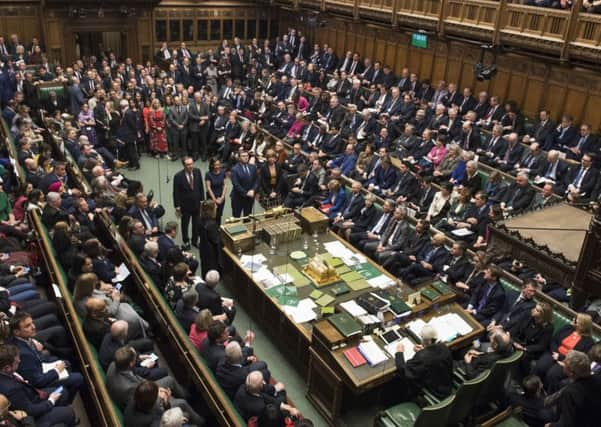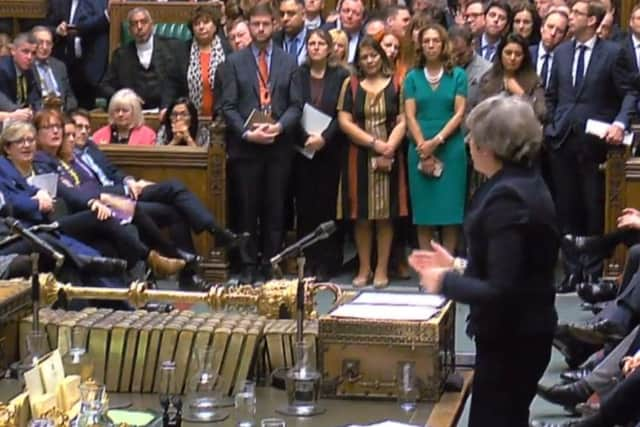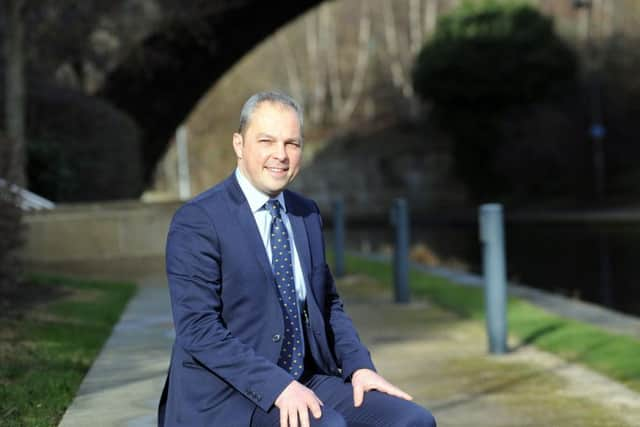Ed Cox: Brexit Assembly could offer the way ahead '“ and reassure Leave voters in the North


Two and a half years later and there is little sign that Westminster has seen the writing on the wall. This week’s votes, and the continuing fallout, have left the majority of us more convinced than ever that our Parliamentary democracy is no longer fit for purpose when it comes to addressing such long-term and complex matters as our relationship with the EU.
Advertisement
Hide AdAdvertisement
Hide AdOf course, Yorkshire’s MPs, like MPs nationally, have differing views on Brexit – from ‘leave means leave’ Andrea Jenkyns through to staunch remainers such as Rachel Reeves. But they also differ on what should happen next.


Some, like former Brexit Secretary David Davis, seem happy to let the clock run down and to see a no-deal Brexit. Meanwhile others like Mary Creagh support a second referendum. And Jeremy Corbyn’s ally Jon Trickett has warned a People’s Vote should be a “last resort” and would prefer a general election.
It leads one to wonder whether Parliament can be any more trusted to find a way forward as it can to have agreed a deal in the first place. And who could confidently predict that an amended agreement, a second referendum or even a new government might somehow strike a deal and miraculously unite the nation?
With MPs unable to agree on almost anything, returning the question to the people in some way or other seems inevitable. But it is a false choice to frame this as a choice between either a general election or a second referendum, or to insist that the vote in 2016 held all the answers (if it did, we wouldn’t be here). There is a third way.
Advertisement
Hide AdAdvertisement
Hide AdYorkshire’s MPs should acknowledge their differences and together support a citizens’ assembly on Brexit to help break the deadlock. A Brexit Assembly would return the matter to the public but without the clunkiness of a referendum or the cynicism and upheaval of a general election. A citizens’ assembly is a much better democratic tool for such a complex and contested matter, and could be designed and implemented to give it the maximum power steer to Parliament and fire a clear democratic shot over the boughs of the EU bureaucrats. So how might it work?


First, a Brexit Assembly must be properly representative. Whether drawn by lot or very carefully sampled, it can actually be more representative than any elected body. It could be carefully sampled to ensure 52 per cent of its participants voted to leave, but it would also ensure that its members came from all walks of life, all age groups and ethnicities and all parts of the country, in proportion to their make-up of the general population.
Second, a Brexit Assembly must be truly deliberative. Similar examples, like the Irish constitutional assembly, weigh up the evidence with the express purpose of finding common ground. This is the very antithesis of Parliamentary politics where opposing sides trade blows with a view to establishing numerical advantage. A Brexit Assembly might meet over extended periods – perhaps four or five consecutive weekends – to weigh evidence and tease out opinion.
Thirdly – and crucially – a Brexit Assembly must carry some weight. While different democratic practices may suit different circumstances, it would be naïve to think that they all carry equal weight. The credibility of a Brexit Assembly requires an understanding that its deliberation will be taken seriously – otherwise it is nothing more than a focus group.
Advertisement
Hide AdAdvertisement
Hide AdIf a cross-party group of Yorkshire MPs were to take up this cause it would once showcase Yorkshire’s reputation as a place for democratic innovation.
From the Chartists to the Suffragettes, the North of England has always been first to show the way to Westminster’s intransigent ruling classes. Two hundred years after Peterloo, Parliament’s reputation is on the rack: deliberative democracy in the form of a Brexit Assembly is an opportunity whose time has come.
Ed Cox is director for people, power and place at the Royal Society for the Encouragement of Arts, Manufactures and Commerce. He tweets @edcox_rsa.